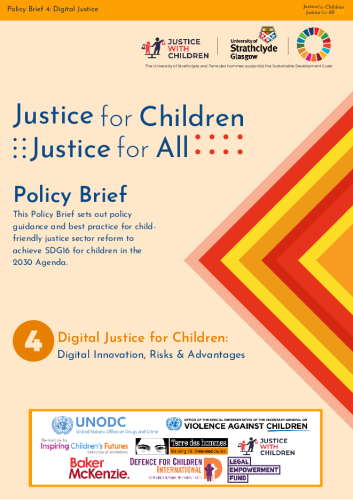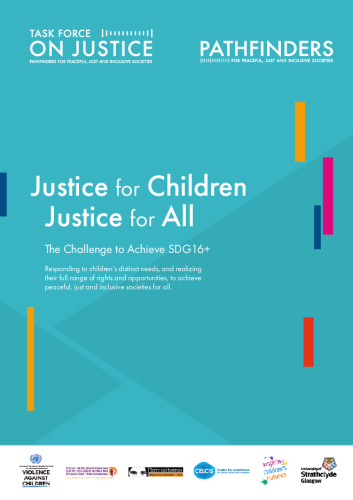Digital justice innovations have become a reality all around the world.
Digital tools for online communication and the use of technologies in legal proceedings burst onto the justice scene during COVID-19. Meanwhile, funding constraints continue to accelerate their use.
While the emergence of digital justice spaces has enabled swift adaptations–forming a strong learning platform for reflection, planning, and embedding reforms digital innovations can risk an uncritical embracing of technologies which exacerbate existing problems.
Instead, reforming digital justice spaces creates an opportunity to avoid simply replicating current justice system flaws, by designing and implementing digital tools that solve key justice problems facing children.
This brief alerts policymakers and justice professionals to the potential impacts of uncritically applying technologies in digital justice spaces which include children, and outlines a set of prompting questions and recommendations for policymakers and supporting bodies engaged in policy processes related to justice with, and for, children.



